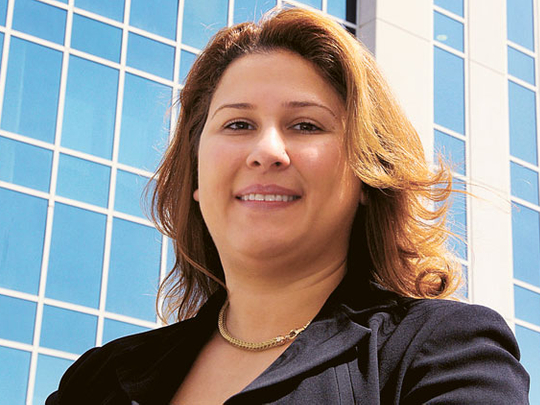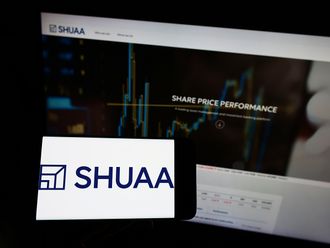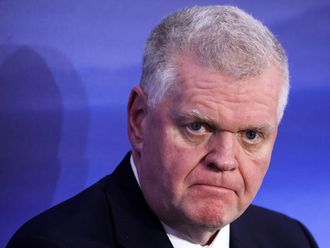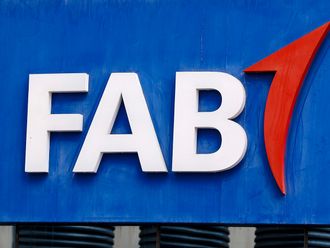
Dubai: The distance of time has always come in handy when it comes to having a perspective on events. Much the same can be said of trends as well.
If in January mention was made about microfinance in the Middle East context, it would have elicited a sceptical nod and an accompanying suggestion that it may not be a format suited for the region.
But some months down the line and the seismic changes that have washed over much of the region's social and political landscapes, microfinance and its merits are being given a fresh hearing. And this time it is being given a more sympathetic hearing.
Even though microfinance may yet find it difficult to make a mark in the GCC, it still can have a role to play in creating the small enterprises of tomorrow elsewhere in the region.
Egypt — with its banking system still finding its feet since the revolution — could be a classic instance of a marketplace that would require tapping into microfinance at some point in the near future.
Julia Assaad, general manager of Grameen Jameel, provides an overview of the possibilities that microfinancing has in the region. Being in many ways the author of micro-financing, Grameen Jameel is uniquely positioned to spread the word in the region.
Gulf News: The belief is that Grameen Jameel is predominantly targeted at small initiatives in agriculture. Isn't it the case that the Middle East environment is skewed differently for microfinancing ventures?
Julia Assaad: Micro-credit in the Mena region has its specificities and may differ from one country to the next, but the underlying principles are the same globally. Some institutions offer group lending with the traditional microcredit group solidarity concept, others offer individual loans; yet the basic principles of microcredit remain the same to the most part.
Grameen-Jameel Microfinance is the first social business in the Arab world established in 2003 and incorporated in 2007 as a joint venture between Abdul Latif Jameel (ALJ) Foundation, a subsidiary of ALJ group, and Grameen Foundation. Its mission is to enhance the microfinance sector's ability by providing financial products and services to programmes and institutions, as well as technical assistance.
What about the microcredit network in the region as it exists now? Do you think it requires a qualitative upgrade in the way it operates to reach the intended audience?
In the Middle East and North Africa (Mena), there are over 400 NGOs and microcredit institutions which exist yet these only reach 4 per cent of the intended population in the region. Such NGOs provide financing through funds they lend from investors such as Grameen-Jameel. We partner with NGOs or microfinance institutions (MFIs) in nine countries in the region, including Morocco, Egypt, Tunisia, Jordan, Lebanon, Syria, Yemen, Palestine and Turkey.
Such borrowers lend from the institution to purchase raw material, goods, stock for their micro-enterprise. The clients are usually self-employed household-based entrepreneurs with diverse trades including small retail shops, street and market vendors handicraft, livestock, trade, as well as agriculture in rural areas.
Are there any specific preferences in terms of which sector these ventures should be?
There are no specific sectors required as long as it is an established project for a micro-project provided to low-income individuals. Given there is a ceiling to the maximum loan size, which varies from one country to another, the amounts tend to address microenterprises.
Are there any specific markets that the regional operations are focused on? What is the minimum level of capital support that is provided for such ventures?
Grameen-Jameel is focused as an investor in micro-finance in the region, while the company has various projects in different countries with several products and services. As an investor, we have specific criteria - minimum assets, minimum number of clients, size of operation, number of years in operations, etc. - to select which NGO or micro-finance institution we partner with.
The vetting process on an institution can take between a week or a month depending on the institution. However, we does not dictate or impose which clients the institution will lend to as this forms part of the initial vetting process on the institute.
On average a client can receive a loan from an institution within two weeks.
Where do you source your own funding requirements from? How much have you disbursed to date and on how many projects?
Our sources of funding are from the shareholders - Abdul Latif Jameel and Grameen Foundation. As of March 2011, Grameen-Jameel facilitated financing of over $56 million, reaching over 1.4 million clients through its partner micro-finance institutions in the region.
The repayment rate of the institution to Grameen-Jameel is 100 per cent, while the repayment of the clients to the institution is on average 98 per cent, which is the highest repayment rate when comparing to banks who request guarantees and collateral.
The average loan size to clients vary from one institution, from one client to another (depending on the project) and from one country to another.
We see on a daily basis the change to many clients who have improved their lives through the help of a micro-loan. Micro-finance in itself is not the means to an end, but a tool to help finance individuals to be self-sufficient.
Pioneer
Even as microfinance tries to get more than a foothold in the region, the founder of the concept, Prof Mohammad Yunus — the 2006 Nobel Peace Prize winner — was going through a bit of a turmoil of his own.
Yunus, who was the founder of Grameen Bank in Bangladesh, stepped down from the position of managing director on May 12. "In a letter to colleagues, as well as a letter to the borrower-owners, Yunus emphasised the importance of maintaining the bank's independence," said Julia Assaad.











